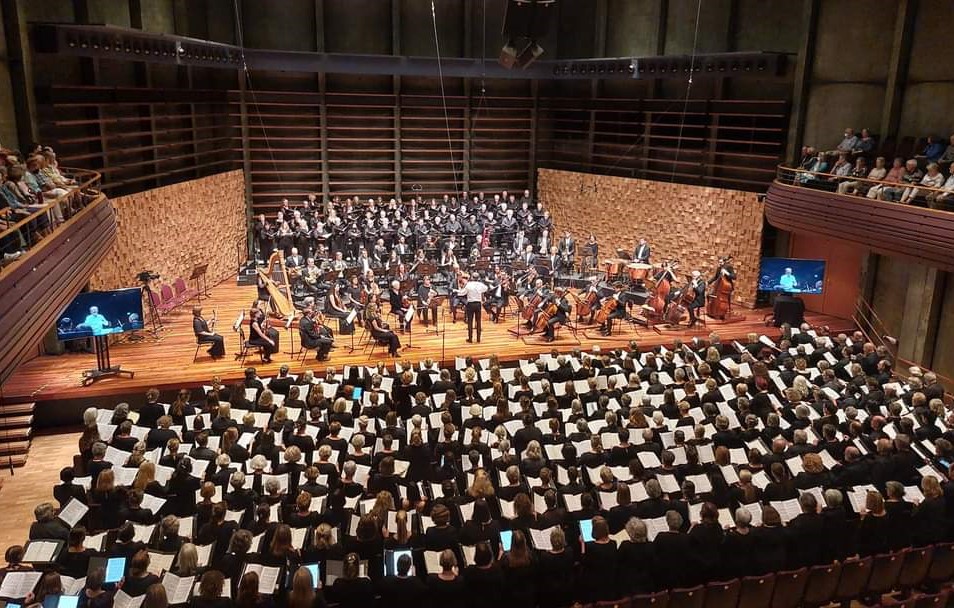Photostory
When I decided to join a community chorus for a performance of Brahms Requiem, I knew little about the work but loved the idea of singing in a choir again, refreshing my knowledge of music, and learning the German words.
I soon discovered that this requiem was unusual because, unlike a traditional Catholic mass or requiem, the text is from the Luther bible. Brahms confessed that he would have gladly called it a ‘human requiem’. It focuses on the living, rather than prayers for the dead, beginning with the beatitude ‘Selig sind, die da Leid tragen’ (Blessed are they that mourn, for they will be comforted) and, although the words are sacred, it is considered that ‘sympathetic humanism’ continues throughout the work.
A New York Times article by James Oestreich points out that several performances in New York in 2017 – for instance, at the Lincoln Centre with Simon Halsey and the Berlin Radio Choir; a Cecilia Chorus of New York performance at Carnegie Hall; and the concert called An Elegy for all Humanity, where the Requiem is paired with Seymour Bernstein’s Song of Nature – demonstrate that it has become an ‘anthem for our time’.
Now, with so many deaths from the war in Ukraine, a pandemic still raging globally, devastating events caused by climate change and the recent earthquakes in Turkey and Syria – there are many left behind who need comfort. I was singing for them all . . . .
Brahms composed this large-scale work for chorus, orchestra and soloists between 1865 and 1868 – around the time that my great-grandparents, accompanied by their infant children, were emigrating from villages in Germany and Poland to Adelaide, South Australia. I couldn’t help wondering if they knew about the first performances of the requiem in Vienna and Bremen. Both Brahms and Bach wrote music for the hymns my family would have sung in their Lutheran churches in Europe and South Australia. Many years later when I was growing up, listening to the music of European composers on ABC radio was an everyday occurrence in our home.
Photo: Simon Halsey, chorus director of the City of Birmingham Symphony Chorus, the London Symphony Chorus and Berlin Philharmonic Youth Programme, conducts the Tasmanian Symphony Orchestra, TSO Chorus, West Australian Symphony Orchestra Chorus, Sydney Philharmonic Choirs and Voices en Masse Chorus at the Federation Concert Hall in Hobart, Tasmania on February 5, 2023.







Leave A Comment